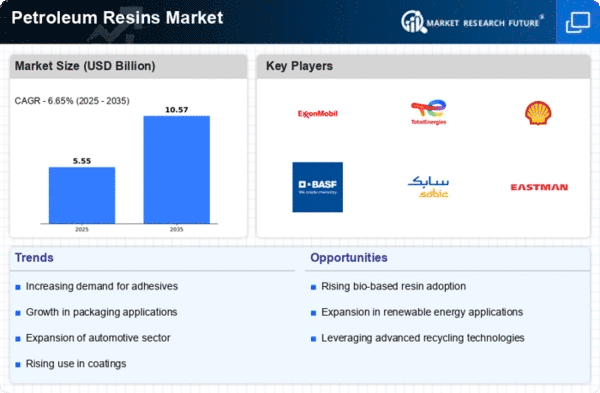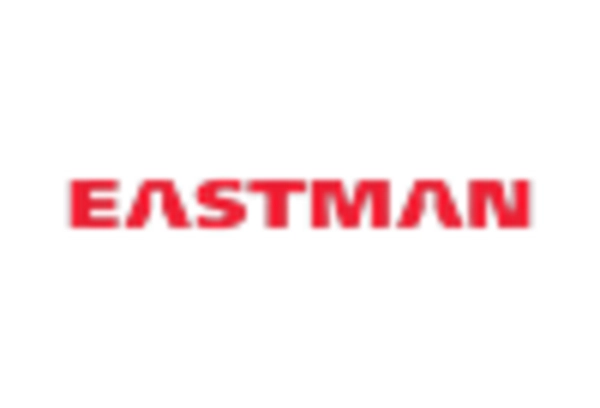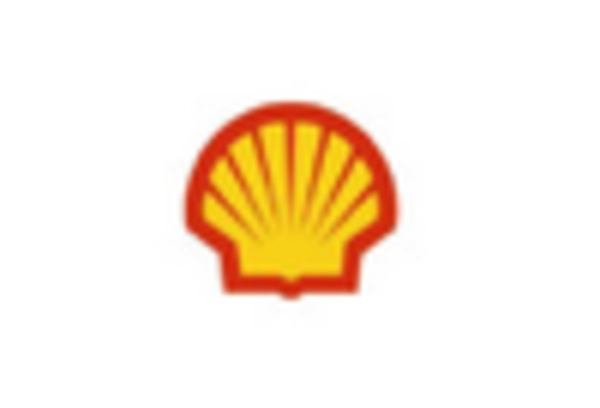Market Share
Petroleum Resins Market Share Analysis
Petroleum resins play a significant role in the construction industry, particularly in applications such as industrial roofing, membranes, and various adhesive formulations. These resins offer valuable properties like color retention, resistance to dirt pickup, water repellency, and efflorescence resistance, making them suitable for a range of construction materials and coatings. In the construction sector, petroleum-based adhesives act as tackifiers, providing high adhesion and strength. They are instrumental in binding tiles, moldings, fixtures, and are commonly used in the installation of ceilings, walls, and floors. One prominent application of petroleum resins in construction is in industrial roofing and membranes. These resins contribute to color retention and resistance to external elements like dirt, water, and efflorescence. They are integral components in coatings for mortar-modified elastic waterproofing membranes, horizontal masonry, and waterproofing membranes used in pool decks. Additionally, petroleum resins find utility in window seals and serve as a topcoat for commercial roof applications, enhancing the durability and weather resistance of these structures. Moreover, in road construction and marking, C5 petroleum resin is utilized in road-marking paints. This resin exhibits a strong affinity with pigments and acts as an auxiliary agent, enhancing the rigidity, tenacity, and tackiness of the paint material. It not only contributes to the formation of a smooth paint surface but also adds waterproofing and UV resistance characteristics to the road markings. The demand for petroleum resin in the construction industry is witnessing significant growth, especially in developing regions like Asia-Pacific and the Middle East & Africa. The expansion of residential and commercial construction, coupled with urbanization and rising per capita disposable income, is driving this demand. Government investments in commercial construction projects for infrastructure development further contribute to the increasing application of petroleum resin in adhesives and sealants within the construction sector. Infrastructure plays a pivotal role in the economic and social development of both advanced and emerging economies. Good road infrastructure, in particular, provides economic benefits by improving market accessibility, productivity, and fostering balanced regional economic development. The road infrastructure investment, covering new construction and improvements to existing networks, is expected to boost the demand for petroleum resin, especially in road marking applications. China, for instance, is increasing spending on road infrastructure to support its growing economy. According to Invest India, the construction market in India is poised to become the third-largest globally, with a projected Compound Annual Growth Rate (CAGR) of 7.1% by 2025. Government initiatives such as the Atal Mission for Rejuvenation and Urban Transformation (AMRUT), Jawaharlal Nehru National Urban Renewal Mission (JNNURM), and the Pradhan Mantri Aawas Yojana are anticipated to spur infrastructure development activities in India. the Middle East & Africa region is experiencing rapid growth in the construction industry due to a shift from oil-based economies to industrial development. Increasing investments in infrastructure projects, particularly in transport, are expected to drive the demand for petroleum resin. Mega-events like Expo 2020 and FIFA World Cup 2022 in the UAE and Qatar are also contributing to increased construction and renovation activities, further fueling the demand for petroleum resin in these regions. Dubai, for example, has allocated USD 7 billion for infrastructure development and construction for the World Expo 2020, while Qatar is investing significantly in its National Vision 2030 program, focusing on infrastructure and real estate projects over the next few years.


















Leave a Comment